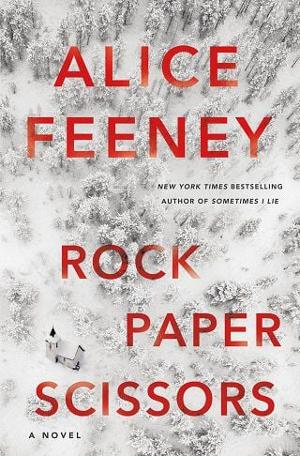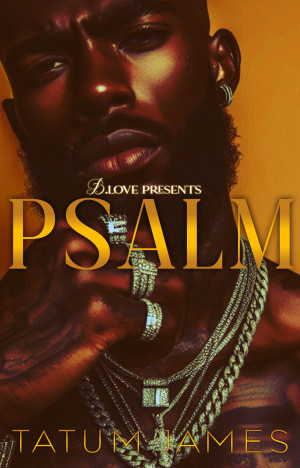Adam
ADAM
Doesn’t a KEEP OUT sign make everyone want to see what’s behind it? And I’ve always been rather attracted to danger.
I know Amelia will take forever to “freshen up” in the bathroom and I’m bored waiting. So I take a sip of wine, then step back out onto the landing to see if Bob wants to keep me company. But he’s already sound asleep. And snoring.
That’s when the DANGER KEEP OUT sign catches my eye and I just can’t resist trying the door handle it is hanging on. Surely nothing that dangerous could really be lurking behind it. All the other doors up here were locked, but when I turn the knob, this one opens. I don’t know what I was expecting, but I suppose I’d hoped for something more exciting than a narrow wooden staircase leading upward. I can see another door at the top of it. Bob has opened one eye and grumbles in my direction. But curiosity killed the cat, not the dog or the man, and now I really want to know what’s at the top of the stairs.
There’s no light, so I grab one of the candles from the bedroom, then make my way up. One creaky step at a time. I feel something touch my face in the gloom, and imagine tiny fingers, but it’s just cobwebs. I guess nobody has cleaned this part of the house for a long time either. I’m anticipating that the door at the top of the forbidden stairs will be locked. But it isn’t. As soon as I open it, a huge gust of wind blows out the candle and almost knocks me off my feet.
The bell tower.
The Arctic air outside feels like a slap in the face, but the view from the top of the chapel is spectacular. I feel like I can see the whole world from up here—the valley, the loch, the mountains in the distance, all lit by a fat full moon. The snow has stopped, finally, and the clouds have parted to reveal a black sky decorated with stars. The bell—which is considerably bigger than it looks from the ground—is surrounded by four knee-high white walls. There is no safety rail and barely enough room to sidestep around the main attraction, but it’s worth the risk to take in the three-sixty-degree view from every possible angle.
As I look up at the night sky, it seems almost inconceivable to me that something so magical is always there. We’re all too busy looking down to remember to look up at the stars. It makes me sad when I think about all the things I might have already missed out on in life, but I plan to change that.
I take my phone out of my pocket to take a picture—the phone my wife thinks is still at home in London. I felt sick when I saw her taking it out of the car glove compartment before we left home, then hiding it in the house. I felt even worse when she lied about where it was, blaming me for leaving it behind. She’s been behaving strangely for months and now I know I haven’t been imagining it.
Amelia went to see a financial advisor recently. She didn’t tell me about it until after the event. Said that I spent too much time worrying about the past, and that she wanted to better prepare for the future. I didn’t realize at first that she meant hers, not ours. What other explanation is there for her setting up life insurance in my name and asking me to sign it when she thought I was drunk a couple of weeks ago?
“I just think we’re at an age where we need to plan ahead,” she said, after eleven on a school night with a pen in her hand.
“I’m only forty.”
“And what if something happened to you?” she persisted. “I couldn’t afford to pay for a big house in Hampstead Village by myself on my salary. Bob and I would be homeless.” The dog—on hearing his name—looked at me then, as if he was in on it.
“You wouldn’t be homeless. Worst-case scenario, you might have to downsize…”
She shook her head and held the pen toward me. I signed the paperwork, because I was too tired to argue and because my wife is one of those women who is difficult to say no to.
Maybe it’s because her parents died when she was born, or perhaps it’s because of all the sad things she sees at work almost every day, but Amelia thinks about death more than I think is normal. Or healthy. Especially now that she seems so preoccupied with mine.
My wife is planning something, I’m sure of it. I just don’t know what.
And I’m not having a midlife crisis.
That’s what she keeps accusing me of lately.
I suspect everyone reaches an age where they start to question what they’ve achieved in life. Whether the choices they’ve made were the right ones. But I also believe that what I do—telling stories—is important. Stories teach us about our past, enrich our present, and can predict our future. But then I would say that. The words I have written are all that will remain of me when I’m gone.
Actors and directors get all the glory in my business, and most of my career has been spent adapting other people’s novels, but those are my words that you hear when you watch a TV show or film that I worked on. Mine. I didn’t even read the book I was asked to adapt last year. I decided that—one way or another—the story that got made was going to belong to me. The producer on the show said she loved my version more than the novel and I was ecstatic. Briefly. Then she asked for changes because that’s what these people do. So I made them and gave in the next draft. Then the director asked for changes, because that’s what they do. Fast-forward a few months and even one of the actors asked for changes, because of course they know the characters better than I do, even though they came from my head. So even though I swear my third or fourth draft was much better than their final version, I made the changes because if I hadn’t, I would have been fired, and some other shmuck would have replaced me. Because that’s how this business works.
My life feels the same as my work, with people always wanting to change me. It started with my mother. When my dad left, she worked double shifts at the hospital to raise me and keep a roof over our heads. We lived on the thirteenth floor of a block of flats on a South London council estate. We didn’t have much, but we always had enough. She used to tell me off for watching too much TV when she was working—said my eyes would turn square—but there wasn’t much else to do that didn’t involve getting into trouble. She preferred to see me reading, so I did, and for my thirteenth birthday she gave me thirteen books. They were all special editions by authors I loved as a boy, and I still have them now, on a little shelf in the shed where I write. She wrote a note in a first edition of my favorite Stephen King novel: Enjoy the stories of other people’s lives, but don’t forget to live your own.
She died three months later.
I left school when I was sixteen because I had to, but I was always determined to make her proud. Everything I’ve done since then was about trying to become someone she wouldn’t want to change.
I had a string of girlfriends who tried to change me too, but couldn’t, until I met my wife. For the first time in my life, I found someone who loved me for being me, and didn’t want to change who that was. I could finally be myself and write my own story, without fear of being abandoned or replaced. Maybe that’s why I loved her so much, in the beginning. But marriage changes people whether they like it or not. You can’t unbreak an egg when you’ve already whisked it into an omelette.
I try to shake the negative thoughts from my mind and concentrate on the view. Being this high up reminds me of living on the thirteenth floor as a kid. At night when I couldn’t sleep—the flat had thin walls—I would open my bedroom window as far as it would go and stare up at the night sky. The thing I remember most were the planes—I’d never been on one. I used to count them, and imagine all those people clever enough, lucky enough, and rich enough to be flying away somewhere different to me. I felt trapped, even then. Unlike the view from a block of flats in London, there are no buildings in any direction here, no sign of life at all, and everything is covered in snow, bathed in moonlight. We are truly alone here, which was what Amelia wanted.
People should be more careful what they wish for.
There is a side of my wife that nobody else sees, because she is so good at hiding it. Just because Amelia works for an animal charity, it doesn’t make her a saint. It doesn’t mean she’s never done anything bad, quite the opposite. There are forests less shady than my wife. She might be able to fool everyone else, but I know who she really is and what she is capable of. That’s why I am emotionally bankrupt these days—any love I had left for her is spent.
I’m not pretending to be blameless in all this.
I never thought I was the kind of man who would cheat on his wife.
But I did. And somehow, she found out.
I suppose that makes me sound like the bad guy, but there’s also a bad girl in this story. Two wrongs sometimes make an ugly. And I wasn’t the only one who slept with someone they shouldn’t have. So did Saint Amelia.
 Fullepub
Fullepub 



